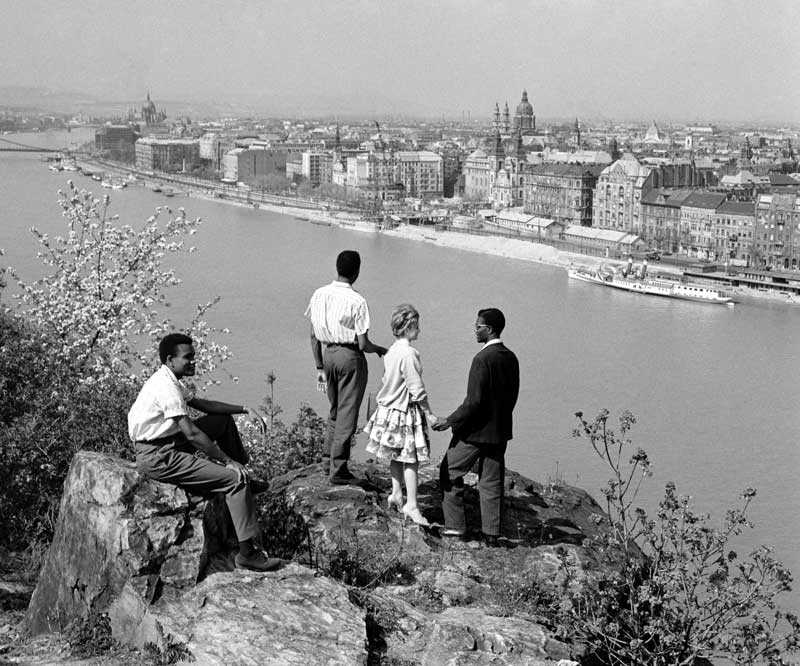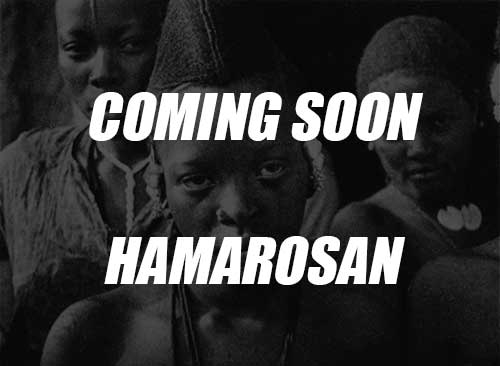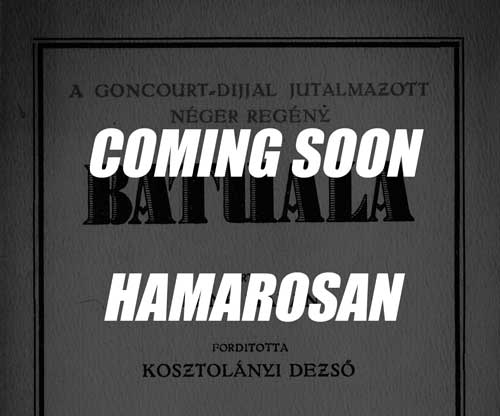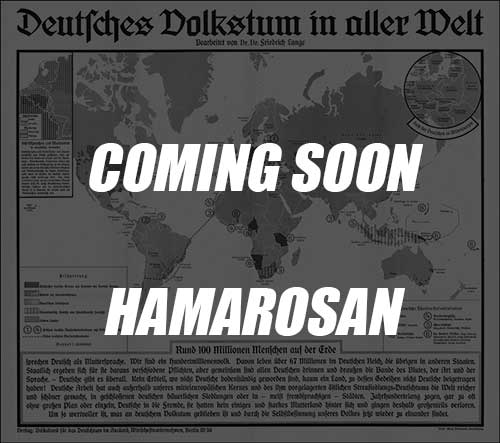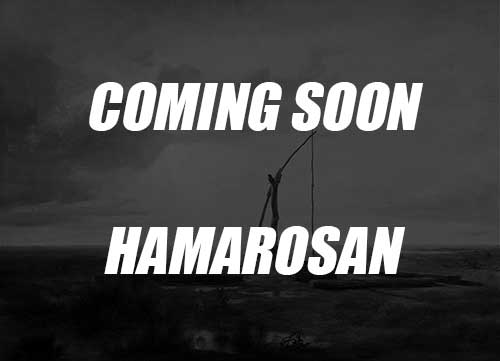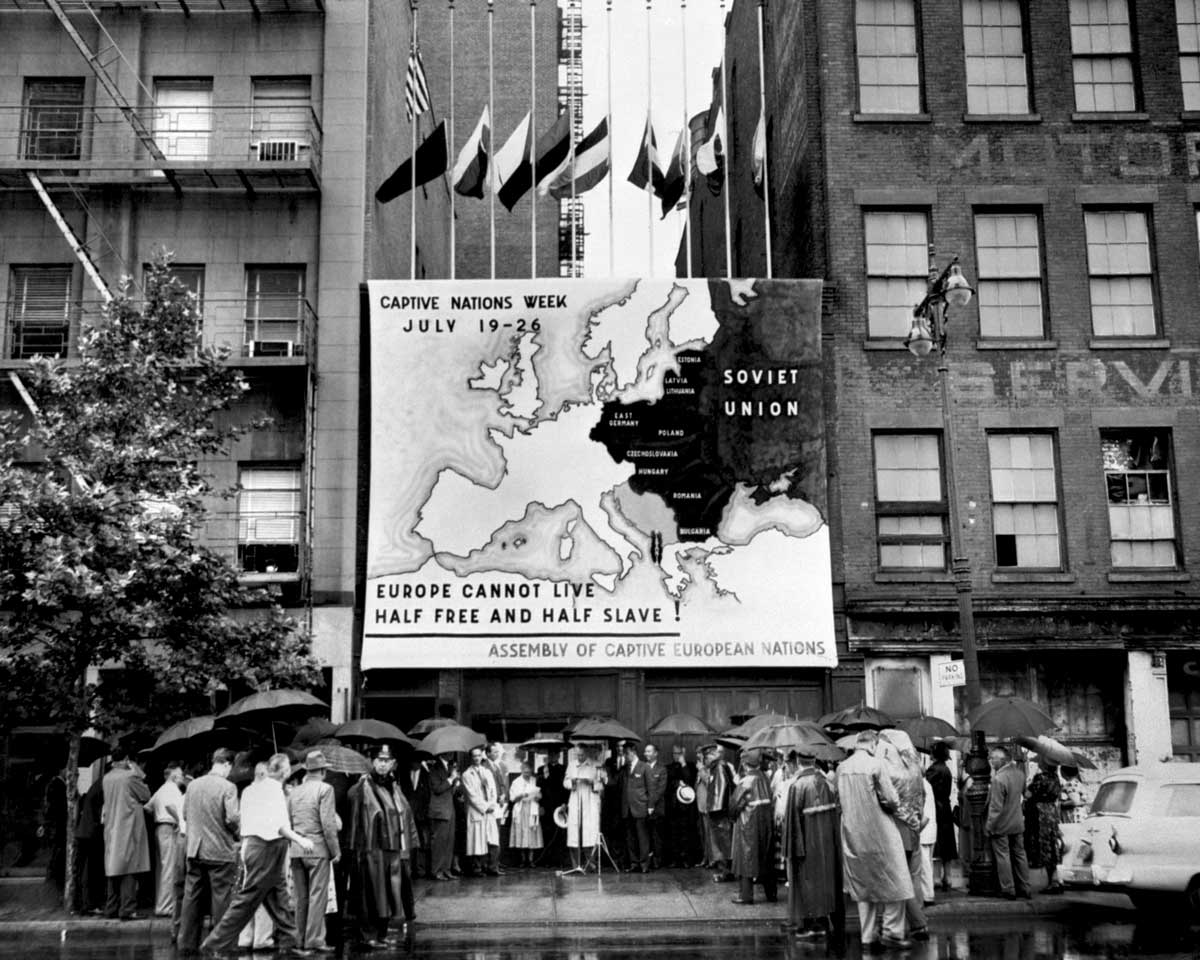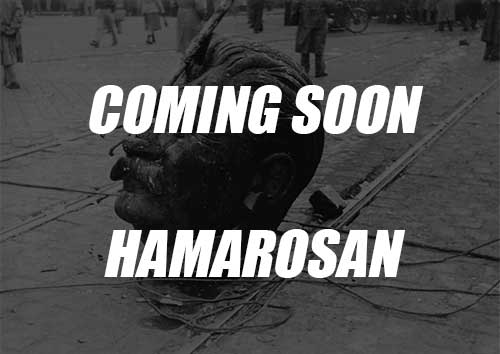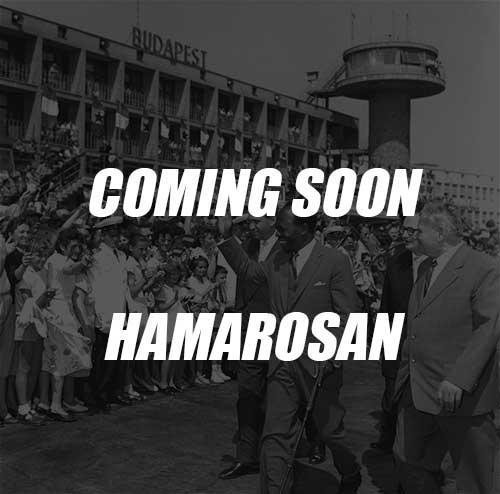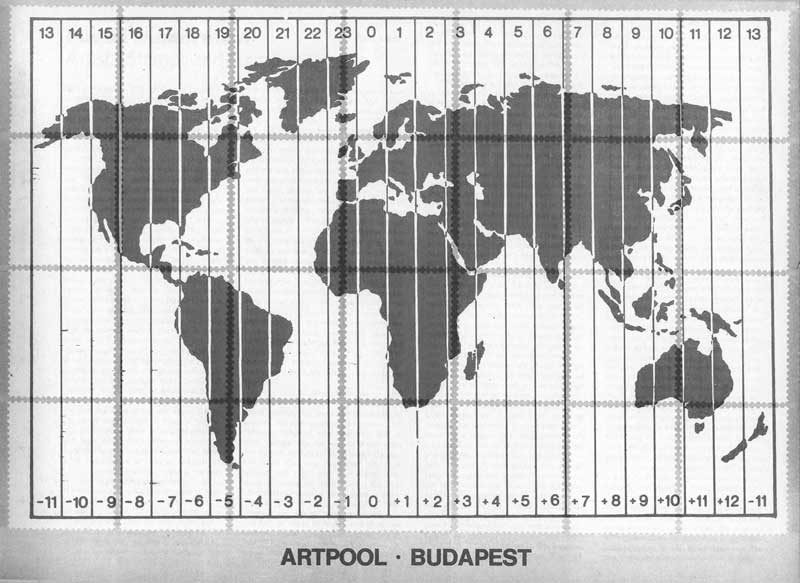The mission of Ferenc Nagy during the Bandung Conference
István Csicsery-Rónay
Weekly Hungary, 31 January 1992.
In: Nagy Ferenc miniszterelnök: Visszaemlékezések, tanulmányok, cikkek. Budapest: Ezerkilencszáznegyvenöt Alapítvány és Occidental Press.
In 1991, the Tsarist and then Soviet empires, which had existed for nearly half a thousand years and had expanded almost to the present day, ceased to exist. This empire differed almost exclusively from that of the other colonisers in that it became the largest empire of all time, mainly by land expansion. This fooled the world's maritime powers - and so Russia became in their eyes (in Churchill's words) a mystery wrapped in a riddle in the middle of an enigma.
That the Emperor was in fact naked was proclaimed to the world by a Hungarian political emigre turned poor peasant boy. At the Bandung Conference in 1955, which launched the Third World organisation, former Hungarian Prime Minister Ferenc Nagy introduced the concept of 'Soviet colonialism' into world opinion. It is time for us Hungarians to remember his unique action.
Ferenc Nagy's prediction
In April 1955, the first international conference of the "Third World", consisting mainly of Asian and African countries, was convened in Bandung, Indonesia. The organisers were the leaders of India, Pakistan, Ceylon, Burma and Indonesia. In addition, Afghanistan, the Gold Coast (later Ghana), Cambodia, China, the Philippines, Iraq, Iran, Jordan, Laos, Lebanon, Liberia, Libya, Nepal, Saudi Arabia, Syria, Sudan, Thailand, Turkey, South Vietnam, North Vietnam, Yemen, the Philippines and Sudan participated.
The Americans were in a veritable panic. Newsweek quoted William II on the "yellow peril": "He was right! He foresaw the crisis that threatens the world today, in a form more violent than then - through an Afro-Asian combination that communism would turn against the West. The question is: how to prevent this transformation."
It was then that Ferenc Nagy, who was one of the leaders of the National Committee in New York and had already made several visits to Asia as vice-president of the International Parastassian Union, where he established close contacts with Nehru, Chiang Kai-shek and Japanese politicians. On learning of the preparations for Bandung, he asked the head of the Indian Department in the Foreign Office to convene a conference.
Here, the exiled former Hungarian prime minister put forward his view that in Bandung, Chou En-lai and Ho Chi Minh would do everything in their power to create an anti-Western atmosphere. This will be easy because all participants are united in their condemnation of colonialism. Efforts should therefore be made not only to stigmatise the already declining Western colonialism, but also to condemn the new Soviet colonialism.The unanimous view of the diplomats was that America could do nothing. He was not even invited to the conference. Attempting to influence the conference through the few friendly states that attended was worse than nothing. So the idea arose that Ferenc Nagy himself should go to Asia and use his extensive contacts with the leaders of the coloured world to speak his mind there, to try to steer the conference decisions in the right direction.
New concept of world politics
Before he left, Ferenc Nagy had arranged an invitation from the Pakistan Foreign Affairs Association to give a series of lectures in Pakistan. He and his colleagues (including Mihaly Hőgye and myself) put together a booklet of documentation. In this small book he provided data to prove that the Eastern European countries were Soviet colonies. He sent 200 copies of the booklet to Asia.
Ferenc Nagy thus introduced a new concept into world politics - because until then, white conquest of whites against whites was not called colonialism! -and from then on, this concept proved to be a very effective battle cry both in the European Cold War and in the struggles of the world outside the bloc.
Headquarters in Karachi
Ferenc Nagy’s extraordinary journey began in Manila, then continued in Bangkok, Rangoon and New Delhi. The former Prime Minister settled in Karachi. This large city proved to be a particularly suitable headquarters, as all delegations travelling from the West to Bandung passed through Karachi on their way to meet them. But he also contacted other capitals, such as Colombo, where he sent an invitation to the Ceylonese Prime Minister, Sir John Kotelawala.
Everywhere he negotiated at the government level. He did not go to Bandung. Although he had an invitation to go there, Ferenc Nagy did not want to watch events from the gallery. The Pakistan High Delegate sent him long telegrams informing him of all the important facts, and he was free to contact the various embassies in Karachi at any time.
The arms race
In his speeches, interviews, front-page articles and meetings with foreign ministers and delegates, he expressed his convictions with rare eloquence.
"I am a European man and yet I look forward to the forthcoming conference with great anticipation. I look forward to a conference where the young states of Asia and Africa will work effectively to build real peace, strengthen democracy, restore the right of self-determination of oppressed peoples and bring economic and cultural uplift to underdeveloped countries... Restoring or establishing the right of peoples to self-determination means the abolition of colonialism and imperialism. It would be a grave mistake for the nations of Asia and Africa to demand only the liberation of the old colonies, but to close their eyes to the new Soviet-style colonialism which is spreading through communist subversion... Why has decolonisation stopped? Because... the Soviet Union colonised 100 million people in Europe.
While new colonies are being created in one part of the world, the struggle for decolonisation cannot go ahead in other parts of the world. The Afro-Asian nations must see clearly that colonialism must be fought in an all-encompassing way, otherwise their resolutions in Bandung are doomed to failure."
One of Ferenc Nagy's main arguments was that Soviet colonialism had triggered the largest arms build-up in history, diverting huge economic resources from the "Third World". Truman's "4th Point" programme, which could have been the equivalent of the European Marshall Plan in the rest of the world, was stymied by this very thing, he told the Pakistan Foreign Affairs Association.
Another of Ferenc Nagy's main arguments was the need for economic and social upliftment of Asian and African countries. He cautioned the conference participants against creating an anti-Western sentiment that would seriously jeopardise this uplift.
"The blessings of technology and science must be shared among the peoples of the world," he was quoted as saying by Pakistan's Morning News. "But in this regard, the nations of Asia and Africa, besides their own efforts, need the support of the more fortunate Western countries. And the Western world, perhaps for the first time in history, is ready to give its full support. It would be a great mistake if the conference were to be dominated by an anti-Western sentiment that would discourage the West from supporting them. Politicians who would prolong the underdevelopment of the peoples of Asia and Africa by creating anti-Western sentiment would be taking a heavy responsibility."
It is also worth reading the press commentaries on Ferenc Nagy's mission. The Sunday Morning News in Karachi, for example, writes in an article entitled Russian Colonialism in Europe: "Ferenc Nagy has appealed to the world to prepare a positive and constructive world programme strong enough to wipe communism off the face of the earth. The theme of his speech was "the impact of Soviet colonialism in Europe on the development of the Asian peoples". Nagy expressed his conviction that the Asian peoples were ignorant of the true nature of Soviet communism and stressed the need for a massive educational propaganda campaign to prove that communism was not a progressive but a reactionary state capitalist ideology."
Bomb at Bandung
The Bandung conference began on 18 April 1955. The big sensation of the sessions was the debate around colonialism. Nasser began by raising the Palestinian question and the unchanged colonial status quo in North Africa. Syria called for the annexation of West New Guinea to Indonesia, and Yemen demanded the annexation of Aden. It was then that Iran made reference to the new colonialism of the Soviet Union. Iraq supported the Iranian position, and listed Turkestan, the Baltic States, Poland, Romania, Czechoslovakia as Soviet colonies...
Then Ceylonese Prime Minister Kotelawala threw his bomb into the meeting room, which came as a great surprise to all present, delegates and listeners alike.
“But let us just as healthily and just as firmly let the world know that we are unanimously opposed to all forms of colonialism, and let us unanimously resolve to take decisive and effective action to wipe out all forms of colonialism from the face of the earth. There are many forms of colonialism. The first is the most obvious: Western colonialism. But there are other forms. Consider, for example, the Central and Eastern European annexed states under communist rule - Hungary, Romania, Bulgaria, Poland, Albania, Czechoslovakia, Estonia, Latvia and Lithuania. Are they not colonies just like any colonial territories in Africa or Asia? And if we are united in our rejection of colonialism, is it not our duty to express our rejection of Soviet colonialism as openly as of Western imperialism?"
"With this Sir John Kotelawala launched one of the great debates of the conference," writes a scholar-witness to the events, "which threatened all along to bring the deliberations to a standstill." Sir John Kotelawala did not withdraw his proposal, even after repeated calls from Nehru, but refrained from trying to get it voted on as a formal resolution.
But the gap that had just opened was now being squeezed through by several others. The Pakistani prime minister has called the condemnation of France as colonial while turning a blind eye to the colonialism of the Soviet Union unrealistic. Iraq and Turkey immediately sided with Pakistan, and Turkey put forward a proposal that Nehru had already thought had been withdrawn. The resolution was supported by the Philippines, Iran, Iraq, Japan, Lebanon, Libya, Liberia, Pakistan and Sudan. The proposal condemned "all forms of colonialism, including international doctrines that resort to methods of violence, infiltration and subversion."
China and the commentaries
However, since China necessarily wanted unanimous resolutions – and, of course, the other participants – it finally accepted the text (which did not mention either the West or the Soviet Union by name, but clearly referred to the latter). Here is the text:
“The conference agreed that:
1. it condemns colonialism in all its forms and considers its speedy abolition necessary,
2. the subjugation of peoples to foreign conquest, domination and exploitation is a denial of fundamental human rights, is contrary to the Charter of the United Nations and is an obstacle to the development of world peace and cooperation.
3. to support all these peoples in the cause of freedom and independence, and
4. calls upon the powers concerned to restore to these peoples their freedom and independence."
The world press shared the delegates' surprise. "The head of the government of Ceylon today shocked the conference by challenging Chou En-lai to make a statement against communist colonialism. Chou listened first with surprise, then with icy fury, to Sir John Kotelawala, only one of the five initiators of the conference and a tried and tested neutralist. Sir John Kotelawala demanded that Red China disavow the Cominform, denounce communist subversion and take action to liberate Soviet collaborators... The harmony that had dominated the conference for the fourth day was completely shattered." (New Herald Tribune)
"India's neutralist Nehru and his protégé, Red China's Cho En-la-la, were taught a lesson by a determined small group of anti-Communist nations. So far, this is the highlight of the 29-nation Afro-Asian conference." (Daily News)
"It is particularly important that the vital issue of "colonialism" be put into proper perspective. Brilliant speakers like General Romulo from the Philippines and (another) Ceylon have done just that." (New York Times)
"It was the first time in Asia that world communism was openly associated with Russian imperialism. I therefore believe that Sir John Kotelawala has done a unique service to the subjugated peoples of Europe and Asia... Imperialism can take different forms. Just because the nations of Eastern Europe are represented in the UN does not mean that they are sovereign states. India was represented in the League of Nations, not because India was sovereign, but because it suited Britain." (Sudhir Hendre: "India and the Bandung Conference")
With this, Ferenc Nagy's mission was complete. And the powers outside the bloc set off on their historic journey, but in a very different direction from the one planned by its organisers... The true significance of Bandung, however, can only be appreciated if we bear in mind that at the turn of the millennium, 80 per cent of humanity will belong to the 'Third World'.
Nagy Ferenc missziója a bandungi konferencia idején
Csicsery-Rónay István
Heti Magyarország, 1992. január 31.
In: Nagy Ferenc miniszterelnök: Visszaemlékezések, tanulmányok, cikkek. Budapest: Ezerkilencszáznegyvenöt Alapítvány és Occidental Press.
1991-ben a közel félezer év óta fennálló s szinte napjainking terjeszkedő cári, majd szovjet birodalom megszűnt létezni. Ez a birodalom szinte csak abban különbözött a többi gyarmatosítóétól, hogy főleg szárazföldi terjeszkedés útján vált minden idők legnagyobb kiterjedésű impériumává. Ez megtévesztette a tengeri világhatalmakat – így lett a szemükben Oroszország (Churchill szavaival) egy misztériumba csomagolt rejtvény egy enigma közepén.
Azt, hogy a császár valójában meztelen, egy szegény parasztfiúból lett magyar politikai emigráns kiáltotta világgá. A harmadik világ szervezkedését megindító 1955-ös bandungi konferencián Nagy Ferenc volt magyar miniszterelnök dobta be a világközvéleménybe a “szovjet kolonializmus” fogalmát. Itt az ideje, hogy mi, magyarok is visszaemlékezzünk egyedülálló akciójára.
Nagy Ferenc előrejelzése
1955 áprilisára hívták össze a főleg ázsiai és afrikai országokból álló “harmadik világ”-nak az indonéziai Bandungban megtartandó első nemzetközi konferenciáját. A szervezők India, Pakisztán, Ceylon, Burma és Indonézia vezetői voltak. Rajtuk kívül részt vett Afganisztán, Aranypart (a későbbi Ghana), Fülöp-szigetek, Irak, Irán, Jemen, Jordánia, Kambodsza, Kína, Laosz, Libanon, Libéria, Líbia, Nepál, Szaúd-Arábia, Szíria, Szudán, Thaiföld, Törökország, Dél-Vietnam, Észak-Vietnam.
Az amerikaiakat valósággal pánik szállta meg. A Newsweek II. Vilmost idézte a “sárga veszedelemről”: “Igaza volt! Előre látta azt a válságot, amely ma fenyegeti a világot, egy, az akkorinál erőszakosabb formában – egy afro-ázsiai kombináció útján, amelyet a kommunizmus majd a Nyugat ellen fordít. A kérdés az: hogy hogyan lehet ezt az átalakulást megakadályozni.”
Ekkor lépett a színre Nagy Ferenc, aki a New York-i Nemzeti Bizottmány egyik vezetője volt, és a Nemzetközi Parasztunió alelnökeként már többször látogatott Ázsiába, ahol Nehruval, Csiang Kaj-sekkel és japán politikusokkal szoros kapcsolatot teremtett. Bandung előkészületeiről értesülve a külügyminisztériumban megkérte az indiai osztály vezetőjét, hogy hívjon össze egy konferenciát.
Itt a száműzetésben élő, volt magyar miniszterelnök előadta, hogy véleménye szerint Bandungban Csou En-laj és Ho Si Minh mindent el fog követni egy Nyugat-ellenes hangulat kialakítására. Ez azért lesz könnyű, mert minden résztvevő egységes a kolonializmus elítélésében. Arra kell tehát törekedni, hogy ne csak az amúgy is letűnőben levő nyugati gyarmattartást bélyegezzék meg, hanem ítéljék el az új, szovjet kolonializmust is.
A diplomaták egységes véleménye az volt: Amerika semmit sem tehet. Meg sem hívták a konferenciára. A részt vevő néhány baráti állam útján kísérletet tenni a konferencia befolyásolására – rosszabb a semminél. Így merült fel az a gondolat, hogy maga Nagy Ferenc induljon Ázsiába, és felhasználva széles körű kapcsolatait a színes világ vezetőivel, mondja el ott gondolatait, próbálja a konferencia döntéseit jó irányba terelni.
Új világpolitikai fogalom
Nagy Ferenc, még mielőtt útnak indult volna, meghívást eszközölt ki a Pakisztáni Külügyi Társaságtól pakisztáni előadássorozat megtartására. Munkatársaival (köztük Hőgye Mihállyal és jómagammal) egy dokumentációs könyvecskét állított össze. Ebben a kis könyvben adatokkal bizonyította, hogy a kelet-európai országok szovjet gyarmatok. A könyvecskéből 200 példányt előreküldött Ázsiába.
Nagy Ferenc ezzel egy új fogalmat vezetett be a világpolitikába – hiszen eddig fehéreknek fehérek ellen végrehajtott hódításait nem hívták kolonializmusnak! –, s ez a fogalom ettől kezdve mind az európai hidegháborúban, mind a tömbön kívüli világ küzdelmeiben igen eredményes csatakiáltásnak bizonyult.
Főhadiszállás Karacsiban
Nagy Ferenc rendkívül útja Manilában kezdődött, majd Bangkokban, Rangoonban, Új-Delhiben folytatódott. A volt miniszterelnök Karacsiban állapodott meg. Ez a nagyváros különösen alkalmas főhadiszállásnak bizonyult, hiszen minden nyugatabbról Bandungba igyekvő delegáció útja itt, Karacsin keresztül vezetett keresztül, s így találkozni tudott velük. De felvette a kapcsolatot más fővárosokkal is, például Colombóval, ahová felhívását megküldte Sir John Kotelawala ceyloni miniszterelnökhöz.
Mindenütt kormányszinten tárgyalt. Bandungba nem ment el. Bár oda is volt meghívása, Nagy Ferenc nem akarta az eseményeket a karzatról figyelni. A pakisztáni fődelegátus hosszú táviratokban tájékoztatta őt minden fontosabb tényről, ő pedig Karacsiban bármikor a különböző nagykövetségekhez fordulhatott.
A fegyverkezési hajsza
Előadásokban, interjúkban, első oldalon megjelenő cikkeiben és a külügyminiszterekkel, delegátusokkal folytatott tárgyalásain meggyőződését ritka ékesszólással fejtette ki. Álljon itt egy rész felhívásából a konferencia résztvevőihez:
“Európai ember vagyok, és mégis nagy várakozással nézek a közelgő konferencia elé. Azt várom a konferenciától, hogy Ázsia és Afrika fiatal államai eredményesen munkálkodnak az igazi béke megteremtésén, a demokrácia megerősítésén, az elnyomott népek önrendelkezési jogának visszaállításán és az elmaradott országok gazdasági és kulturális felemelésén... A népek önrendelkezési jogának visszaállítása vagy megteremtése a kolonializmus és imperializmus felszámolását jelenti. Súlyos hibát követnének el az ázsiai és afrikai nemzetek, ha csak a régi kolóniák felszabadítását követelnék, de behunynák szemüket az új, szovjet típusú gyarmattartás előtt, amely a kommunista szubverzió útján terjed... Miért állott meg a dekolonizáció? Mert... a Szovjetunió 100 millió európai embert gyarmatosított.
Amíg a világ egyik részén új gyarmatok keletkeznek, nem haladhat előre a dekolonizációs küzdelem a világ más részein. Az afro-ázsiai nemzeteknek világosan kell látniuk, hogy a gyarmattartás ellen mindent átfogó módon kell harcolni, másképp határozataik Bandungban bukásra vannak ítélve.”
Nagy Ferenc egyik fő érve az volt, hogy a szovjet gyarmattartás a történelem legnagyobb arányú fegyverkezését indította meg, ami hatalmas gazdasági forrásokat vont el a “harmadik világ”-tól. Truman “4-ik pont” programját, mely az európai Marshall-terv megfelelője lehetett volna a világ egyéb részében, éppen ez akasztotta el – mondta a Pakisztáni Külügyi Társaságban.
Nagy Ferenc további fő érve az ázsiai és afrikai országok gazdasági és szociális felemelésének szükségessége volt. Óvta a konferencia résztvevőit egy Nyugat-ellenes hangulat kialakításától, ami ezt a felemelkedést komolyan veszélyeztetné.
“A technika és a tudomány áldásait meg kell osztani a világ népei közt – idézi a pakisztáni Morning News – E tekintetben azonban Ázsia és Afrika nemzeteinek, a saját erőfeszítésük mellett, szükségük van a szerencsésebb nyugati országok támogatására is. És a nyugati világ – talán először a történelem folyamán – kész a teljes támogatásra. Nagy hiba lenne, ha a konferencián úrrá lenne egy Nyugat-ellenes hangulat, mely elvenné a Nyugat kedvét a támogatástól. Nagy felelősséget vennének magukra azok a politikusok, akik egy Nyugat-ellenes hangulatkeltéssel meghosszabbítanák az ázsiai és afrikai népek elmaradottságát.”
Érdemes elolvasni a sajtó kommentárjait is Nagy Ferenc missziójával kapcsolatban. A karacsi Sunday Morning News például ezt írja Orosz kolonializmus Európában című cikkében: “Nagy Ferenc felhívást intézett a világhoz egy pozitív és konstruktív világprogram előkészítése érdekében, mely elég erős arra, hogy eltörölje a kommunizmust a föld színéről. Beszédének témája “az európai szovjet gyarmatosítás hatása az ázsiai népek fejlődésére” volt. Nagy kifejezte azt a meggyőződését, hogy az ázsiai népek nem ismerik a szovjet kommunizmus igazi jellegét, és hangsúlyozta nagyméretű felvilágosító propaganda szükségességét, mely bizonyítja, hogy a kommunizmus nem haladó, hanem reakciós államkapitalista ideológia.”
Bomba Bandungban
A bandungi konferencia 1955. április 18-án kezdődött. Az ülések nagy szenzációja a kolonializmus körüli vita volt. Nasszer kezdte azzal, hogy felvetette a palesztin kérdést, valamint az észak-afrikai gyarmati állapotok változatlan fennmaradását. Szíria Nyugat-Új Guinea Indonéziához csatolását sürgette, Jemen pedig Adent követelte. Ekkor történt utalás – Irán részéről – a Szovjetunió új kolonializmusára. Irak támogatta az iráni álláspontot, s felsorolta – mint szovjet gyarmatokat – Turkesztánt, a balti államokat, lengyelországot, Romániát, Csehszlovákiát...
Ekkor dobta az ülésterembe Kotelawala ceyloni miniszterelnök bombáját, mely az összes jelenlevőt – delegátusokat és hallgatókat egyaránt – hatalmas meglepetésként érte.
“Mi itt mindnyájan – mondta – a gyarmatosítás ellen vagyunk. De adjuk ugyanilyen egészségesen és ugyanilyen határozottan tudtára a világnak, hogy egyhangúlag szemben állunk a gyarmattartás minden formájával, és határozzuk el egyhangúan, hogy döntő és eredményes akciót kezdünk a kolonializmus minden formájának eltörlésére a föld színéről. A gyarmattartásnak több formája van. Az első a legnyilvánvalóbb: a nyugati kolonializmus. De van más megjelenési formája is. Gondoljunk például a közép- és kelet-európai csatlósállamokra kommunista uralom alatt – Magyarországra, Romániára, Bulgáriára, Lengyelországra, Albániára, Csehszlovákiára, Észtországra, Lettországra és Litvániára. Nem éppolyan gyarmatok ezek, mint bármelyik gyarmati terület Afrikában vagy Ázsiában? És ha mi egységesek vagyunk a kolonializmus elutasításában, nem kötelességünk-e nyíltan kifejezni elutasításunkat a szovjet kolonializmussal szemben éppúgy, mint a nyugati imperializmussal szemben?”
“Ezzel indította el Sir John Kotelawala a konferencia nagy vitáinak egyikét – írja az események egyik tudós szemtanúja –, mely végig azzal fenyegetett, hogy zátonyra futtatja a tanácskozásokat.” Sir John Kotelawala még Nehru többszöri felszólítására sem vonta vissza javaslatát, csak attól állott el, hogy formális határozatként próbálja megszavaztatni.
De a most támadt résen többen is benyomultak. A pakisztáni miniszterelnök irreálisnak nevezte Franciaország elítélését gyarmatosítás címén, miközben szemet hunynak a Szovjetunió gyarmatosítása felett. Irak és Törökország nyomban Pakisztán mellé állt, s Törökország előterjesztette azt a javaslatot, amelyet Nehru már visszavontnak gondolt. A határozati javaslatot a Fülöp-szigetek, Irán, Irak, Japán, Libanon, Líbia, Libéria, Pakisztán és Szudán támogatta. A javaslat elítélte “minden formáját a kolonializmusnak, beleértve a nemzetközi doktrínának is, amelyek az erőszak, a beszivárgás és a szubverzió módszereihez folyamodnak.”
Kína és a kommentárok
Mivel azonban Kína föltétlenül egyhangú határozatokat szeretett volna elérni – s persze a többi résztvevő is –, a szöveget (amely név szerint sem a nyugatiakat, sem a Szovjetuniót nem említette, de világosan utalt az utóbbira is) végül ő is elfogadta. Íme a szöveg:
“A konferencia megegyezett abban, hogy:
1. a kolonializmust annak minden formájában elítéli, és szükségesnek tartja a gyors felszámolását,
2. a népek alávetése idegen hódításnak, uralomnak és kizsákmányolásnak az alapvető emberi jogok megtagadását jelenti, ellentétben áll az ENSZ alapokmányával, s gátolja a világbéke s -együttműködés fejlődését.
3. támogatást nyújt a szabadság és függetlenség kérdésében mindezen népeknek, és
4. felhívja az érdekelt hatalmakat, hogy adják vissza e népeknek szabadságukat és függetlenségüket.”
A világsajtó osztozott a delegátusok meglepetésében. “Ceylon kormányfője ma megrázta a konferenciát: kihívást intézett Csou En-lajhoz, hogy nyilatkozzék a kommunista kolonializmus ellen. Csou először meglepetéssel, majd jeges dühvel hallgatta Sir John Kotelawalát, aki a konferencia öt kezdeményezője közül csak az egyik volt, és egy kipróbált neutralista. Sir John Kotelawala követelte, hogy Vörös Kína tagadja meg a Kominformot, ítélje el a kommunista szubverziót, és lépjen föl a szovjet csatlósok felszabadítása érdekében... A harmónia, amely a negyedik napig uralta a konferenciát, teljesen összetört.” (New Herald Tribune)
“India neutralista Nehruját és védencét, Vörös Kína Cso En-laját, móresre tanította anti-kommunista nemzetek elszánt kis csoportja. Eddig ez a 29 nemzetet felölelő Afro-ázsiai konferencia kiemelkedő fejleménye.” (Daily News)
“Különösen fontos, hogy a “kolonializmus” létfontosságú ügye helyes perspektívába állíttassék. Briliáns szónokok, mint Romulo tábornok a Fülöp-szigetekről és (egy másik) Ceylonból épp ezt érte el.” (New York Times)
“Ez volt az első eset Ázsiában, hogy a világkommunizmust nyíltan az orosz imperializmussal hozták kapcsolatba. Ezért azt hiszem, hogy Sir John Kotelawala egyedülálló szolgálatot tett Európa és Ázsia alávetett népeinek... Az imperializmus különböző formákat ölthet. Azért, mert a kelet-európai nemzetek képviselve vannak az ENSZ-ben, még nem tekinthetők szuverén államoknak. Indiának is volt a Népszövetségben képviselete, de nem azért, mert India szuverén volt, hanem mert ez megfelelt Nagy-Britanniának.” (Sudhir Hendre: “India és a bandungi konferencia”)
Ezzel Nagy Ferenc missziója befejeződött. A tömbön kívüli hatalmak pedig elindultak történelmi útjukra, de egészen más irányba, mint ahogy megszervezői tervezték... Bandung igazi jelentőségét azonban csak akkor mérhetjük fel, ha észben tartjuk: az ezredfordulón az emberiség 80 százaléka a “harmadik világhoz” tartozik majd.





